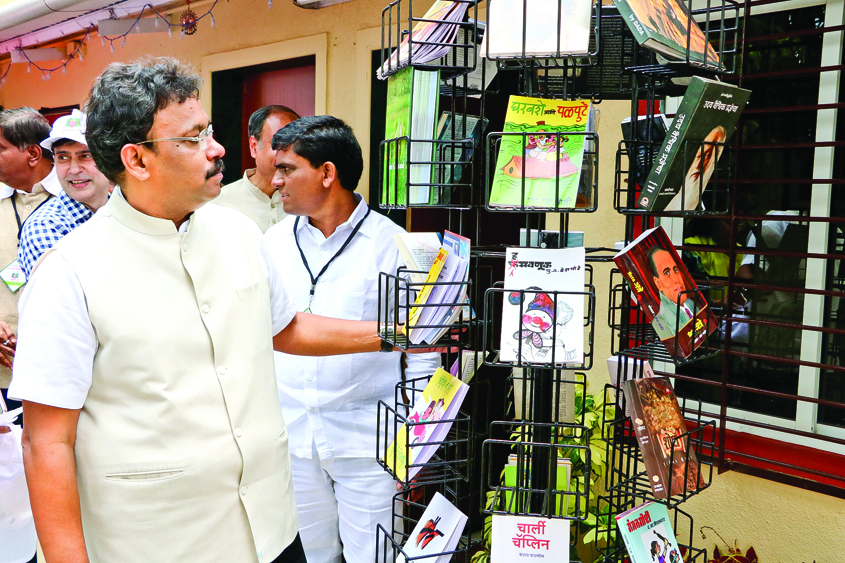Q. How and when did this idea of Pustakancha Gaon come into your mind?
A. The idea behind Pustakancha Gaon is to present the readers of Marathi language with a safe haven where they can explore and enjoy the massive wealth of Marathi literature and its hidden gems. I was fascinated by the concept of “Hay-on-Wye”, a village known for its bookstores , in UK. My aim was to provide every Marathi reader a destination to relish the literary wealth of Maharashtra and thus the idea to develop a “Village of Books” in Maharashtra took root in my mind.
Q. How is it different from the “Hay-on- Wye” model in Wales?
A. While “Hay-on-Wye” is driven by profit and an aim to boost local businesses, Pustakancha Gaon is a initiative by the Government of Maharashtra, driven by participation of the residents of Bhilar village for encouraging the reading habit and also make it a holiday destination for readers and literature enthusiasts of Maharashtra.
Q. Why was village Bhilar chosen for the project?
A. The idea was to develop Pustakancha Gaon as a holiday destination for the readers and make it accessible to the people from major cities of the state. Nestled in nature’s lap, Bhilar, renowned for its strawberry farms, seemed like a perfect choice. It was relatively well known as it was close to Mahabaleshwar (a renowned hill station in Maharashtra) and the scenic beauty of the village provided the perfect atmosphere for readers to lose themselves in the world of books.
Q. What are the objectives of the project?
A. Pustakancha Gaon has been conceived with a view to encourage Marathi language and literature, to promote the habit of reading and helping readers, writers, authors, educators, students, literature enthusiasts, publishers, etc., find a common ground and connect to one another
Q. Can you describe, in brief, the specifics of the project?
A. “Pustakancha Gaon” is a very fine example of people’s participation in government initiatives. The village of books consists of 25 locations across Bhilar village, including the homes of the villagers, temples, public and private properties, lodges and school. These premises have an allocated area where books are placed and the readers can lounge around with the book of their choice. These 25 locations have been allocated a theme. Biographies, History, Fiction, Children’s Literature, Poetry, Freedom History, Art, Science, Sports, Women’s Writings are some of the themes. These locations have been beautified with the help of murals relating to the theme by a team of volunteers.
Q. Apart from books, are there any other literary activities planned in Bhilar?
A. Pustakancha Gaon is more than just a library. It is planned to develop it as Maharashtra’s hub for literary activities. Events like meet-and-greet with authors, book releases, writing workshops, book club meetings etc., will be organised in the village for readers and visitors.
Q. Are readers charged any fee for reading?
A. At Pustakancha Gaon, books are offered to the readers completely free of charge. Readers are encouraged to read as many books as possible during their stay at the “village of books”.
Q. At present the project covers books in Marathi language. Do you have any plans to add books in other languages too?
A. At present, the books available at Pustakancha Gaon are exclusively in Marathi. However, in future, the collection will be expanded to include books in English, Hindi, Gujarati and also titles conferred with the Sahitya Akademi Award, Jnanpeeth Award and National Literary Awards in various Indian languages.

